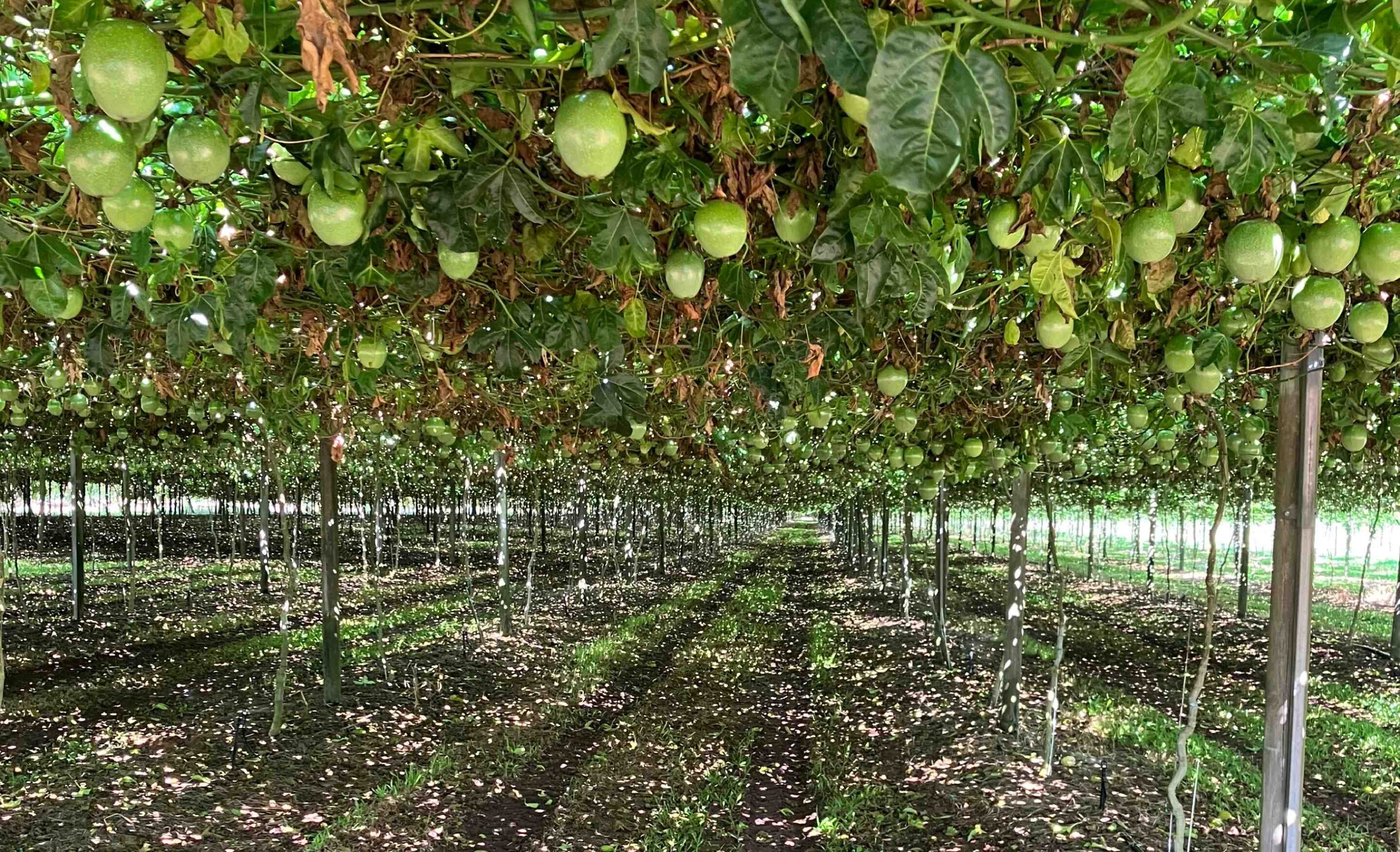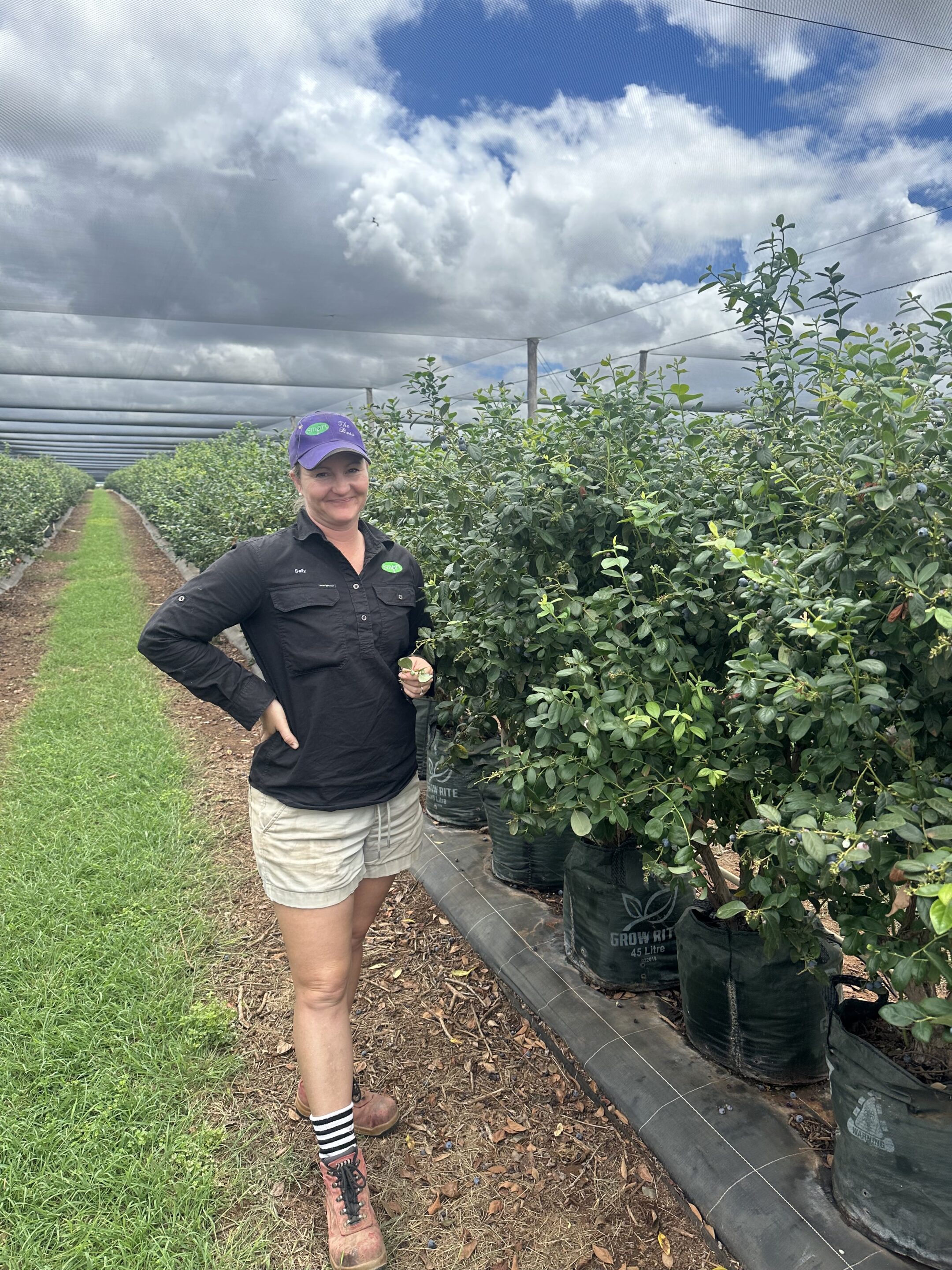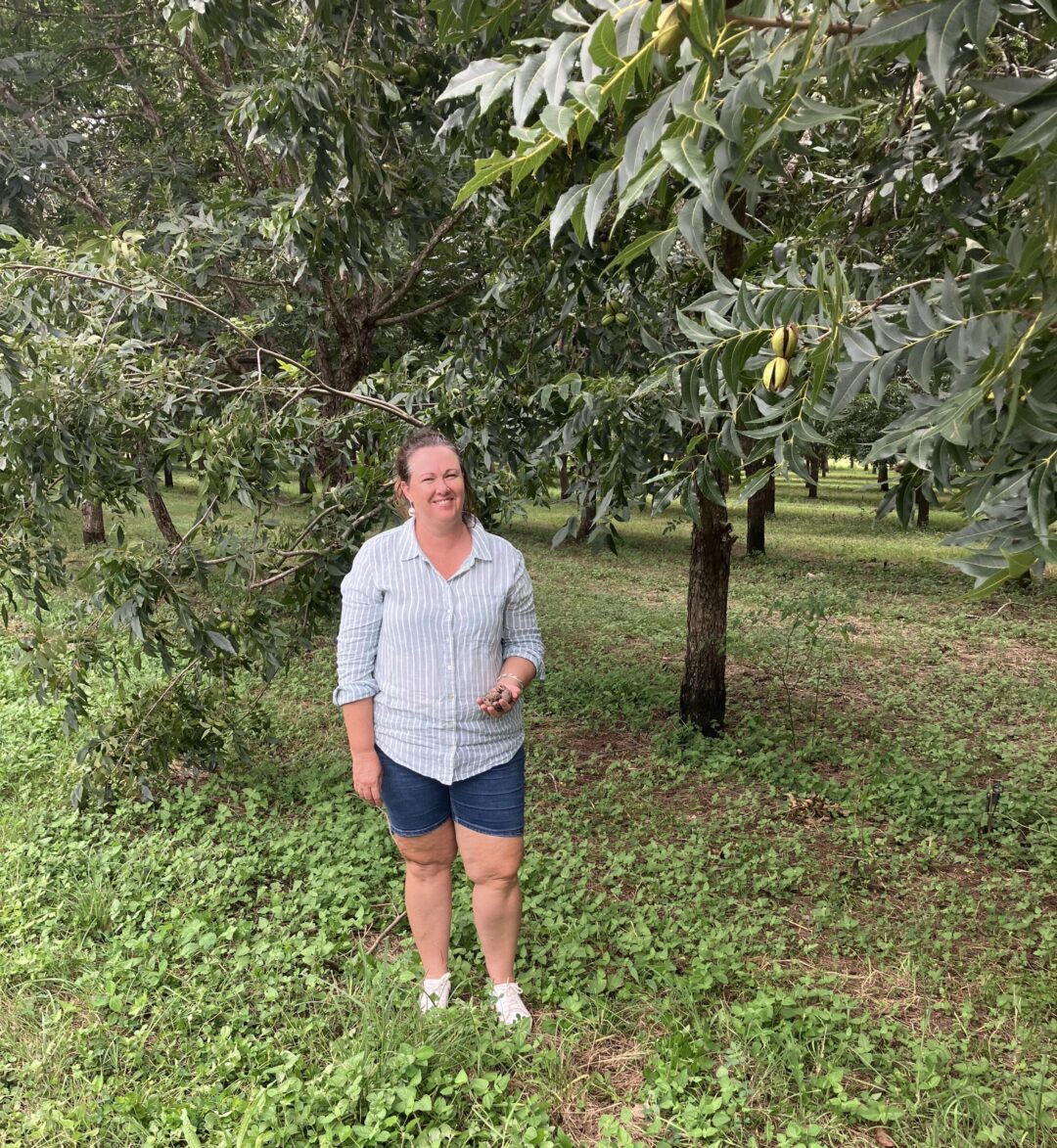Meet Rob Bauer – Bauer’s Organic Farm
As part of the QCWA Country Kitchens Meet a Farmer initiative, the Country Kitchens team recently visited Rob Bauer at Bauer’s Organic Farm, located in the Mount Sylvia & Upper Tenthill areas of the Lockyer Valley. About half the farm is devoted to organic cropping, with the remainder of the ‘hilly’ treed country and creek areas providing habitat for our wildlife and good organic-farm-critters. Rob Bauer is a fourth-generation farmer, with the Bauer family starting to farm the land in 1885 and feeding Australians for over 130 years.
Rob knew that he wanted to be a farmer for as long as he could remember, with the family surname of Bauer, German in origin, even roughly translating to farmer. He loves the variety that you get day to day, as well as the bigger picture of providing delicious produce for customers across the country. With celebrity chefs labelling Rob’s potatoes “the best spuds in the world”, Rob puts his produce quality down to their organic practices and the regions unique soil.
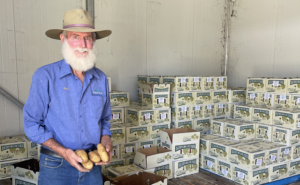
“The Lockyer Valley has some of the best soil in the world, particularly in this area. The soil is stacked the right way in our area of the Lockyer Valley which makes a big difference – you have fertile dark soil at the top and well-draining soil at the bottom. We are especially lucky as we have a mix of volcanic and sandstone rock.”
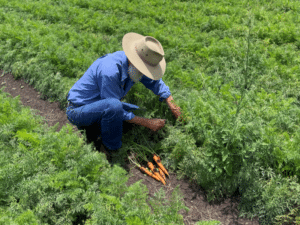
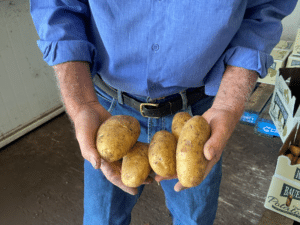
Taking advantage of the fertile soil, Bauer’s Organic Farm currently grows three varieties of potatoes, three varieties of carrot, two varieties of garlic, wombok, parsnip, watermelon, butternut pumpkin, jap pumpkin (kent) and celery. They try a mix of old and new each year, with parsnips being a newer crop that is going well. Carrots are one of the main crops that the farm regularly harvests, and Rob took us through a typical planting to harvesting cycle for the vegetable.
“We usually start the process about 12 months before… we will put a mulch crop in, generally a legume which helps soil quality and helps produce the good bugs that make the soil fertile. We then get the ground ready in stages, as we plant the carrots every two weeks so that we can have a regular harvest over a longer period for our customers… Once the ground is ready, we will plant the carrot seeds, spraying them with an organic weedicide and watering the seeds down to ensure they settle into the ground… It is important to keep the carrots fully covered in the dirt or else the sun will turn the exposed parts green. The next step, once they have grown, is to do the weeding, which is an important part of the harvest.”
Once the carrots are harvested, the farm uses a special machine that pulls the carrots from the ground, breaking off the tops. They then come back to the shed to be put into a water bath, washed, brushed, packed, and stored in the cool room. However, they are usually not in the cold room for long before the truck comes to take them to the customer.
“Nearly everything we pick is already under order. Usually, we are just getting it ready in time for the truck – you try and predict what your buyers are going to order and pick accordingly. That is why we plant regularly every two weeks so that there is a continuous supply… This lets us provide the freshest possible product. Our produce will go to Queensland, New South Wales, Victoria and South Australia.”
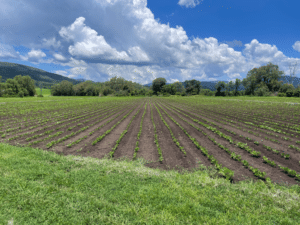
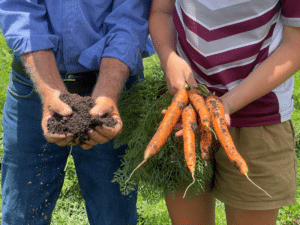
Rob proudly has almost no waste from his carrot crop, with any broken carrots going towards juicing lines and other buyers.
Throughout his decades in farming, Rob has seen a lot of change in the industry and in the Lockyer Valley itself. He has been a champion for the region, promoting the area across the country at various shows and competitions, and sharing his knowledge and learnings on organic farming with the industry and public. Throughout all the changes, when asked what technology has had the biggest impact on farming practices Rob’s answer was simple.
“Forklifts! We used to have to load bags of produce, such as potatoes, all by hand, then unload by hand at places like the Rocklea markets. Now the trucks come in with forklifts and pallet jacks that put them directly onto the truck. The most you have to manually lift is 20kg. This saves days in labour, [and also] puts a lot less stress on a farmer’s body.”
When it comes to eating his produce, Rob and his family are spoilt for choice. Although he still likes to keep things simple, with roasted vegetables and butter a favourite.
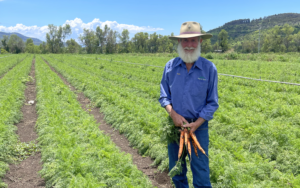
To learn more about Bauer’s Organic Farm, including where you can purchase their produce, you can head to their website: bauersorganic.com. If you are feeling inspired to get more vegetables in your day, you can give our potato and carrot rosti recipe a try, featuring two of Rob’s current vegetables, carrot and potato! These rostis will give you two of the recommended five serves of vegetables for the day. Carrots are a great source of vitamin A, which is important for eye health, while potatoes are rich in vitamin C and potassium, which aid in our immune system function and heart health. If you are looking for more tips on getting your five serves of veggies a day, you can head to eatforhealth.gov.au.
Empowering women through education and health is a priority for the Queensland Country Women’s Association (QCWA). The QCWA Country Kitchens program, funded by the Queensland Government through Health and Wellbeing Queensland, supports Queenslanders to adopt healthier lifestyles.
